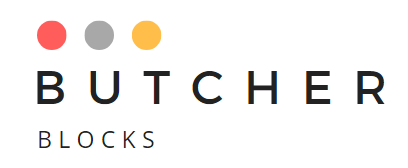Using an independent home inspector can save you thousands in the long run by identifying issues that you may not have found on your own. Real estate agents often recommend home inspectors with whom they have relationships – but these inspectors might be biased.
Going solo can be more costly than working with a company, but it gives you the freedom to set prices, find clients, establish unique branding and organize your business as you see fit.
You Get an Unbiased Opinion
When a home inspector isn’t being paid by a real estate agent or someone else involved in the sale, they can offer a much more honest opinion. They’ll check every part of the home, from the roofing to the plumbing and electrical wiring and can tell you if something is serious enough to cause concern or not.
The best way to find a good home inspector is by asking friends and family for referrals. However, you can also look for inspectors who belong to professional organizations and advertise their services in local magazines or online.
When you interview inspectors, ask about their qualifications and experience. Also, be sure to ask if they’re available for follow-up questions. You want an inspector who is willing to explain their findings in detail, answer all of your questions and can give you a clear picture of the property’s condition. This will help you make a sound decision when purchasing a new home.
You Get a Full Inspection
Home inspectors look at the whole property from top to bottom including attics and basements. They spend two to three hours examining the property. They inspect electrical, plumbing and HVAC systems to make sure they are functioning properly. They also check the condition of windows and doors.
Many independent inspectors carry liability insurance that covers errors and omissions. That means you can receive compensation if your inspector overlooks a major problem like a broken roof or an inoperable furnace.
You can find an independent home inspector by asking around or searching online. Some inspectors work alone, while others work with a franchise company. If you opt to join a franchise, they will provide much of the training and support that you need to become an independent home inspector. They will also give you a list of clients to work with to build your business. However, this can be a more expensive option than working as an independent home inspector.
You Get a Written Report
A good independent home inspector will spend two to three hours thoroughly looking over the property from top to bottom, including attics and basements. They will take photos to document their findings and provide a detailed written report of any issues they find.
They will look for obvious problems, such as a leaking roof and damaged shingles, but they also will check less-obvious things, like whether the laundry room has a properly vented dryer exhaust system (insufficient venting can cause carbon monoxide poisoning) and whether or not there are smoke detectors in place.
If you decide to become an independent home inspector, you can set your own schedule and work around the things that are important to you. Some solo home inspectors hire low-cost administrative help to reduce their workload so they can focus on inspections, while others run their businesses as part of a larger franchise that handles marketing and other business-related functions. Whatever path you choose, working as an independent home inspector will give you a lot of personal satisfaction.
You Get a Better Deal
An independent home inspector can often find problems that aren’t obvious to the average homeowner. For example, a leaking roof or outdated wiring might be overlooked, but an experienced inspector can spot these and other issues that can cost thousands to fix after closing.
Real estate agents, however, might describe independent home inspectors as “deal killers.” They’re concerned that the unbiased information in a home inspection report will give buyers reasons to renegotiate with sellers.
As a home field inspector, you’ll need to build your business through advertising, referrals and networking with other professionals in your industry. Consider sending a monthly or bimonthly newsletter covering home inspection, realty and related topics to keep your network engaged and increase referrals. Then, make sure you’re managing your online reputation by reading reviews and addressing comments professionally on Yelp and other social networks. Becoming an independent home inspector offers great flexibility and job security, but it requires time to grow your client base and establish yourself as a quality professional.
